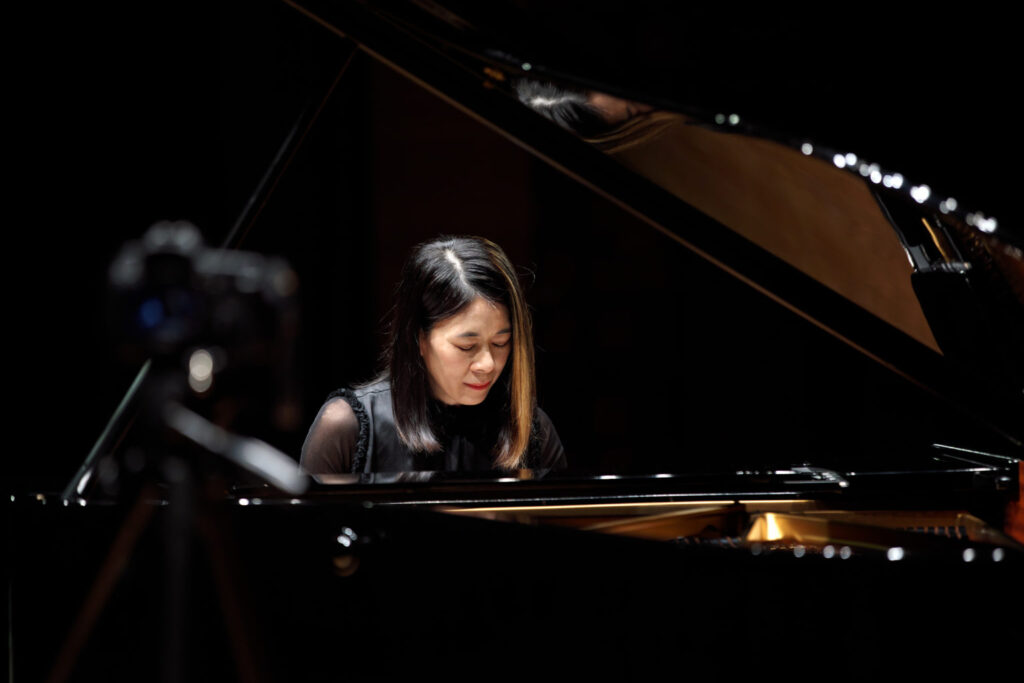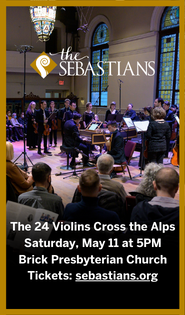Pianist Lin at her best in intimate, nostalgic music
Surrounded as we are in the concert world by bombast and grandiosity—perhaps intended to justify eyebrow-raising ticket prices—there ought to be room for more intimate encounters, such as Yuja Wang’s 2020 program or that of Jenny Lin on Saturday in the friendly confines of Carnegie’s 268-seat Weill Recital Hall.
Lin brought a fine sensibility and assured touch to works rarely heard in recitals because of their inward-looking, non-showy character, despite being by masters of the caliber of Glass, Shostakovich and Stravinsky.
A retrospective, nostalgic thread ran through much of the program, epitomized by its opening piece, The Messenger by the contemporary Ukrainian composer Valentin Silvestrov. The spirit of Mozart seemed to come to the composer in a dream here, his scales and trills going in and out of focus, amid long pauses for reflection. Lin caressed the keys to conjure this evanescent vision.
The similarly titled Distant Figure: Passacaglia for Solo Piano by Philip Glass appeared to invoke Schubert’s impromptus in the burble of its figurations, the striking harmonic shifts, and the tunes that floated out of the Glassian arpeggios. The variations promised in the subtitle flowed forth easily under Lin’s fingers.
Metrically fluid in Glass’s characteristic way, his Modern Love Waltz, composed in 1978 to accompany a radio broadcast of Constance DeJong’s book Modern Love, unfolded charmingly over a left-hand ostinato.
Regrettably, the protean 48 preludes and fugues of Bach’s Well-Tempered Clavier—and their modern counterparts, the 24 of Dmitri Shostakovich’s Op. 87—tend to be treated as objects of study rather than recital fare. So kudos to Jenny Lin for sharing two of these Shostakovich gems—the A minor and the A major, Nos. 2 and 7 of that opus—with her recital audience.
Lying low under charges of “formalism” from Stalin’s arts authorities, the Soviet composer secretly affirmed the most formal concepts in Western music in brisk, objective preludes and delightfully intricate fugues. Lin’s bold tone and transparent textures brought out the Baroque-modern contours of the acerbic A minor pieces and the sunny A major ones.
Lin high-stepped and clowned elegantly in Shostakovich’s well-known Polka from The Golden Age, with its humorously exaggerated rubato. The elaborate piano arrangement by Florian Noack of Waltz No. 2 from Shostakovich’s Suite No. 1 for Variety Orchestra—music for films, in other words—was rich in soulful Russian tunes and “three hand” keyboard effects. It seemed to invite a little more cutting loose than Lin’s somewhat objective performance gave it.
It was typical of the always-surprising Igor Stravinsky that his only Sonata for piano, composed in 1924 as he embarked on his neoclassical period, looked back not to Mozart or Beethoven but to Bach. Lin’s touch was détaché, and her aesthetic stance appropriately detached as well, in the work’s bustling outer movements; the shapely lines managed to be objective and expressive at the same time. The central movement’s florid melody over shifting chords brought thoughts of the corresponding movement in Bach’s Italian Concerto.
In a whole different way of looking backward, Franz Liszt honored his late contemporary Franz Schubert with a perfumed arrangement of the latter’s song “Ständchen.” Lin’s performance, with its delicate echo effects in the last verse, was lush-toned and rich in amorous rubato, yet avoided sentimentality.
Who knew that this dip into Liszt would send this intimate recital into another universe, the hellish scenery of that composer’s “fantasia quasi sonata,” Après un lecture de Dante?
You don’t go to a poetry reading to see a football game, but on the other hand one can’t blame Lin for wanting to show off her hard-won athletic chops at the keyboard. And one looked forward to the mild-mannered musician transformed and spouting octave runs, tremolos, bounding chords and finger-twisting passagework.
That didn’t quite happen on this occasion, despite the pianist’s successful traversal of all the fantasia’s fiendish difficulties, because the freedom to shape the dramatic arc of this Technicolor epic comes from the kind of hell-for-leather, devil-may-care—pick your infernal metaphor—virtuosity that this performance didn’t quite attain.
But there was much to admire along the way: the moans of the damned in the chromatic opening theme, the way Lin’s expert voicing picked melodies out of the furious fingerwork, the dramatic pacing throughout, and her sheer physical courage tackling the piece’s extravagant technical demands.
Lin’s single encore brought the program full circle with Federico Mompou’s delicate “Secreto”—coincidentally, the piece with which Yuja Wang closed her intimate recital referenced above.








